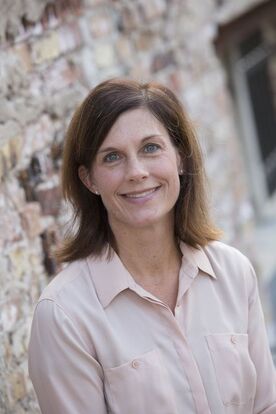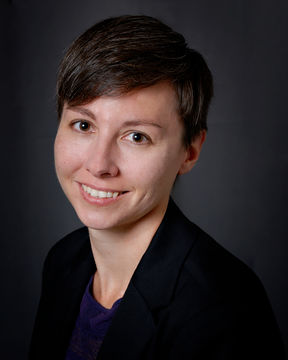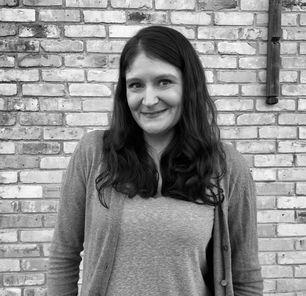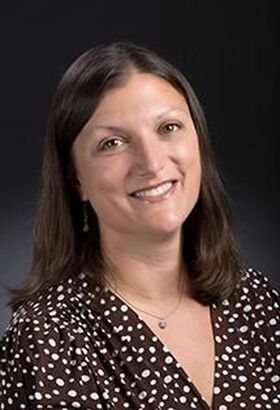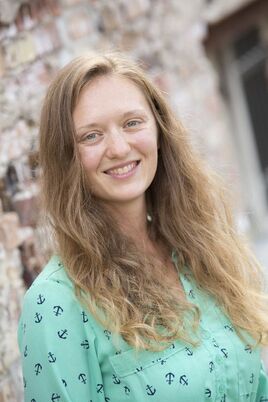|
Michelle Bunyer, M.A.
Researcher, Center for Urban Population Health, University of Wisconsin Milwaukee Ms. Bunyer supports several community-based program evaluations through plan design, instrument development, database management, and data analysis and interpretation. She also serves as the Evaluation Coordinator for the Temporary Assistance to Needy Families Alcohol and Other Drug Abuse (TANF AODA) project in partnership with Milwaukee County Behavioral Health Division-Community Access to Recovery Services. She is interested in building evaluation capacity in community organizations and developing methods to present evaluation data which encourage continuous program improvement.
Ms. Bunyer holds a Master’s Degree in Clinical Psychology from the University of Missouri-Columbia and a Bachelor’s Degree in Psychology from Hope College, in addition to a certificate in Educational Research Methodology from the University of Illinois-Chicago. Curriculum Vitae |
|
Jessica Bizub, BA
Researcher, Center for Urban Population Health, University of Wisconsin Milwaukee Jessica Bizub holds bachelor’s degrees in Political Science and English Literature from Marquette University and completed master’s level coursework in advanced statistics. At UW-Milwaukee, she has served as led and supported numerous applied research projects for public and private entities, including needs assessments and program evaluations, and has helped agencies use results for guiding strategic and program planning. Her areas of interest include social and emotional health, the human-natural environment connection, and using implementation science to improve the translation of evidence into practice.
Jessica has a broad research skillset, which includes evaluation design, experience developing online and paper-and-pencil survey instruments, conducting interviews and collecting observational data to support the applied research projects. She is skilled in using SPSS to conduct statistical analyses. Her experience in all phases of programming—from planning to implementation to evaluation—provides her with a unique perspective that is both theory and practice-based. Prior to joining CUPH, Jessica worked as a researcher at Milwaukee Public Schools and the UWM Center for Urban Initiatives and Research, a program coordinator for the Volunteer Center of Ozaukee County, and a project coordinator for the Alliance for Children and Families. Her background in K-12 education and nonprofit service provides her with a unique understanding of the many challenges agencies face in planning, implementing and evaluating programs. Curriculum Vitae |
|
Elizabeth A Duthie, PhD
Researcher, Center for Urban Population Health, University of Wisconsin Milwaukee
Rachel Lander, PhD
Senior Scientist, Center for Urban Population Health, University of Wisconsin Milwaukee Dr. Lander helps organizations and partnerships be strategic, impactful, and collaborative. She combines academic research with what actually works in real life. She has 25 years of experience as a classroom teacher, evaluator, researcher, educator, implementation scientist, collaborative leader, and community activist. She is currently researching the Milwaukee Partnership Project, a collaborative initiative between three large non-profit organizations focusing on increasing students’ growth in academic and social emotional skills. Another current project involves supporting neighborhood anchor organizations implement improvement plans. With colleagues, she created the Steps for Success Field Guide & Institute, a step by step process for effective collective impact. She also has extensive experience as an implementation scientist, ensuring initiatives are implemented successfully and with fidelity. As a mixed-methods researcher, she has evaluated a multitude of programs, initiatives, and coalitions.
Her current work includes speaking, writing, coaching, evaluating, and training organizations and partnerships to build the infrastructure necessary to establish, track, and reach the changes they desire. Previously, Dr. Lander served on a state-wide Governor-led task force. She received her PhD from Michigan State University in Educational Policy, Curriculum, and Teacher Education where she was a Dean’s Scholar and a Spencer Fellow, and she began her career as a Teach For America corps member teaching middle school in Phoenix, Arizona. Curriculum Vitae |
|
Karen A. Palmersheim, PhD
Researcher, Center for Urban Population Health, University of Wisconsin Milwaukee Dr. Palmersheim is an epidemiologist and researcher at the Center for Urban Population Health. She is the principal investigator of a grant awarded by the Wisconsin Division of Public Health, under which she conducts tobacco surveillance and evaluation research for the State. Her interest in tobacco stems from her desire to contribute to an area of applied research that can help reduce morbidity and premature mortality at the population level. Her work has been instrumental in policy considerations and program development by the state’s Tobacco Prevention and Control Program, including the establishment and maintenance of Wisconsin’s statewide smoke-free law.
Dr. Palmersheim has experience in all aspects of the research process: proposal development, methodological design, literature review, survey instrument construction, data analysis, report and manuscript writing, and presentation of research findings to interested stakeholders and at professional conferences. More broadly, Dr. Palmersheim’s background includes conducting applied research at the community level, teaching in academic and community settings, and practicing in clinical settings. Dr. Palmersheim received her Bachelor’s of Science from Marquette University and a Master’s degree in Social Work from the University of Wisconsin-Milwaukee. She completed her Doctorate in Social Welfare, along with a Master’s degree in Epidemiology and a Ph.D. minor in Aging studies, at the University of Wisconsin-Madison. Curriculum Vitae |
|
Kaija Zusevics, PhD, MPH, CHES
Researcher, Center for Urban Population Health, University of Wisconsin Milwaukee Her work includes conducting community-engaged research and evaluation projects in southeastern Wisconsin, participating in coalitions and community initiatives to improve health outcomes among diverse populations, and teaching public health students. Kaija has several areas of focus currently, including improving maternal and child health, preventing gun violence, and researching implementation science in educational contexts. Kaija uses a community engagement as she works with community, non-profit, and governmental agencies to understand and seek to solve complex social and health challenges. She has presented at local and national conferences and has published numerous reports and papers in peer-reviewed journals.
Curriculum Vitae |
